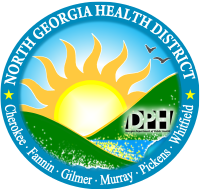- Written by Jennifer King, Public Information Officer
- Category: Media Releases
Please note this list of dates and times when our County Health Departments will briefly close for staff meetings. Thank you!
- Hits: 1709
- Written by Centers for Disease Control and Prevention
- Category: Media Releases
For Immediate Release: Thursday, December 09, 2021
Contact: Media Relations
(404) 639-3286
The following is attributable to CDC Director, Dr. Rochelle Walensky
“Today, CDC is strengthening its booster recommendations and encouraging everyone 16 and older to receive a booster shot. Although we don’t have all the answers on the Omicron variant, initial data suggests that COVID-19 boosters help broaden and strengthen the protection against Omicron and other variants. We know that COVID-19 vaccines are safe and effective, and I strongly encourage adolescents ages 16 and 17 to get their booster if they are at least 6 months post their initial Pfizer vaccination series.”
At this time, only the Pfizer-BioNTech COVID-19 vaccine is authorized and recommended for adolescents aged 16 and 17. More information will be available on CDC’s website soon.
###
U.S. DEPARTMENT OF HEALTH AND HUMAN SERVICESexternal icon
CDC works 24/7 protecting America’s health, safety and security. Whether disease start at home or abroad, are curable or preventable, chronic or acute, or from human activity or deliberate attack, CDC responds to America’s most pressing health threats. CDC is headquartered in Atlanta and has experts located throughout the United States and the world.
- Hits: 1813
- Written by Centers for Disease Control and Prevention
- Category: Media Releases
 Protect children from exposure to lead in metal and plastic toys, especially some imported toys, antique toys, and toy jewelry. Childhood lead exposure is preventable.
Protect children from exposure to lead in metal and plastic toys, especially some imported toys, antique toys, and toy jewelry. Childhood lead exposure is preventable.Many children get toys and toy jewelry as gifts during the holiday season. Some toys, especially some imported toys, antique toys, and toy jewelry may contain lead. Although lead is invisible to the naked eye and has no smell, exposure to lead can seriously harm a child’s health. Young children tend to put their hands, toys, or other objects―which may be made of lead or contaminated with lead or lead dust―into their mouths. If you have a small child in your household, make sure the child does not have access to toys, jewelry, or other items that may contain lead.
Lead in Toys
Lead may be found in the paint, metal, and plastic parts of some toys and toy jewelry, particularly those made in other countries, and also antique toys and collectibles.
- In 2008, the Consumer Product Safety Improvement Act (CPSIA) pdf icon[PDF – 118 KB]external icon was signed into law, requiring toys and infant products to be tested to mandatory standards before being sold.
- The use of lead in plastics has not been banned. Lead softens plastic, making a toy more flexible to return to its original shape. Lead may also be used in plastic toys to stabilize molecules from heat.
- Lead dust can form on toys when some plastics are exposed to sunlight, air, and detergents that break down the chemical bond between the lead and plastics.
- Lead also may be combined with other metals, such as tin, to create alloys that are used to make toys.
To reduce children’s risk for lead exposure, the U.S. Consumer Product Safety Commission (CPSC) tests and issues recalls of current products that may potentially expose children to lead. Check the CPSC websiteexternal icon or call 1 (800) 638-2272 to be sure your child’s toys are safe. You can find photos and descriptions of currently recalled toys on that website. For additional information on lead in toys, visit the CDC Lead website.
- Hits: 3727
- Written by Georgia Department of Public Health
- Category: Media Releases

North Georgia Health District officials continue to urge all residents age 5 and older to get fully vaccinated against COVID-19, including the primary series and boosters (for people 18+); to get tested if experiencing any symptoms of COVID-19; and, to follow the CDC recommendations, as mentioned in the (DPH) press release. COVID-19 vaccine is available with no need for an appointment during clinic hours at our health departments in Cherokee, Fannin, Gilmer, Murray, Pickens and Whitfield counties, and free COVID-19 testing (PCR) is available in our health district through MAKO Medical. Please find on our website details for COVID-19 vaccine and testing offered by public health in North Georgia or go to dph.ga.gov to find all locations where the vaccine and testing are available in Georgia.
Atlanta – The Georgia Department of Public Health (DPH) has confirmed the Omicron variant in an unvaccinated metro Atlanta resident with no recent international travel history. The individual has mild COVID symptoms and is isolating at home. Contact tracing is underway to identify close contacts at risk of COVID-19 infection.
Previously, two cases of the Omicron variant were confirmed in metro Atlanta residents. One of those individuals was tested in New Jersey and is recovering there.
The omicron variant has now been detected in patients in at least 21 U.S. states and in dozens of countries around the world. Preliminary data show that Omicron may cause less severe illness but may spread more easily than the Delta variant. Scientists are still researching how well the current COVID vaccines or natural immunity hold up against Omicron, and caution that it is too early to make conclusions about Omicron because there is not enough data available.
- Hits: 2847



